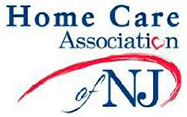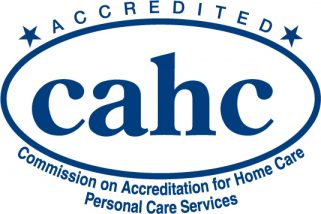Walking and driving in winter can be dangerous for anyone, but especially for older adults. For instance, reaction time and stability decrease as we age, increasing the likelihood of accidents and falls. That’s why talking about Senior Citizen safety in ice and snow is so important.
Here in New Jersey, we’re subject to severe blizzards and nor’easters every winter. The best way to stay safe is to shelter in place until the sidewalks and roads are clear. But if you really must go somewhere, dress for the weather with the proper outerwear and shoes or boots. Senior Citizens should always take safety precautions when walking or driving.
Is it safer to drive or walk in a snowstorm?
Snowstorms lead to ice on roads and sidewalks and increase traffic accidents and injuries from falls. Recent research suggests that walking is more hazardous than driving. Researchers found that during icy and snowy weather, emergency rooms see 64% more injuries from falls than vehicle accidents. In fact, fall injuries increased by 38% during snow storms and 102% when the storms included freezing rain. Senior Citizens are often prone to slips and falls, so safety on snow and ice is crucial for them.
Sheltering in Place
The best way for Senior Citizens to stay safe in a snowstorm is to shelter in place. Make sure your elderly loved ones are prepared before winter weather hits. Create an emergency plan and discuss it with your family. For older adults, post a list of emergency contacts in large text next to the home phone. You can also program these numbers into their mobile phone. Stock up on essentials such as non-perishable food, medical and medication supplies, and bottled water. Create a preparedness kit with a flashlight, batteries, first aid kit, and weatherization supplies. Plan an emergency heat source such as a backup generator, fireplace, or wood stove. Also, test the carbon monoxide and smoke detectors. Finally, have activities and crafts on hand to pass the time.
Walking on Ice
The safest option during severe winter weather is to hunker down until the sidewalks are clear. However, if you must go out, take precautions for walking in snowy and icy conditions. Older adults are more susceptible to hypothermia. So, before going out, dress in layers and don appropriate outerwear.
- Boots with good tread
- Waterproof winter coat
- Hat, gloves, scarves
When walking during a winter storm, older adults should stick to cleared sidewalks. If you must cross snow and ice, take short steps or shuffles for stability. Keep your hands out of your pockets to catch yourself in a fall. And always carry a charged cell phone with you in case of an emergency.
Driving in Winter Weather
It’s best for Senior Citizens to stay off the roads when there’s ice and snow, but sometimes travel is unavoidable. So, make sure your loved one’s car is prepared. Check their tires, antifreeze, windshield fluid, and wipers. In addition, stock their vehicle with an emergency kit.
- Phone charger
- First aid kit
- Jumper cables
- Scraper and shovel
- Tire chains
- Spare tire
- Flares
- Water and snacks
- Flashlight and batteries
- Blanket, hat, gloves, and scarf
- Bag of sand or cat litter
- Extra fuel
If you must drive, go on well-traveled roads that are clear of snow and avoid icy roads, bridges, and overpasses.
Senior Citizen Safety in Ice and Snow
We know how much families worry about their loved ones’ safety in ice and snow. That’s why client safety is our top priority. Our professional CHHHAs can provide safe transport and ensure your loved ones are cared for this winter and all year round. We are Families Helping Families. Call to learn how our family can help yours – 908-788-9390.





